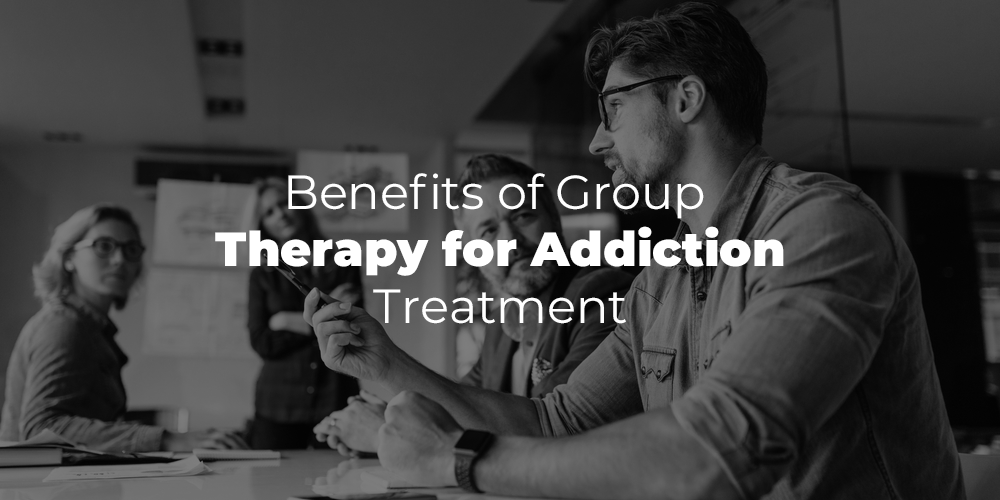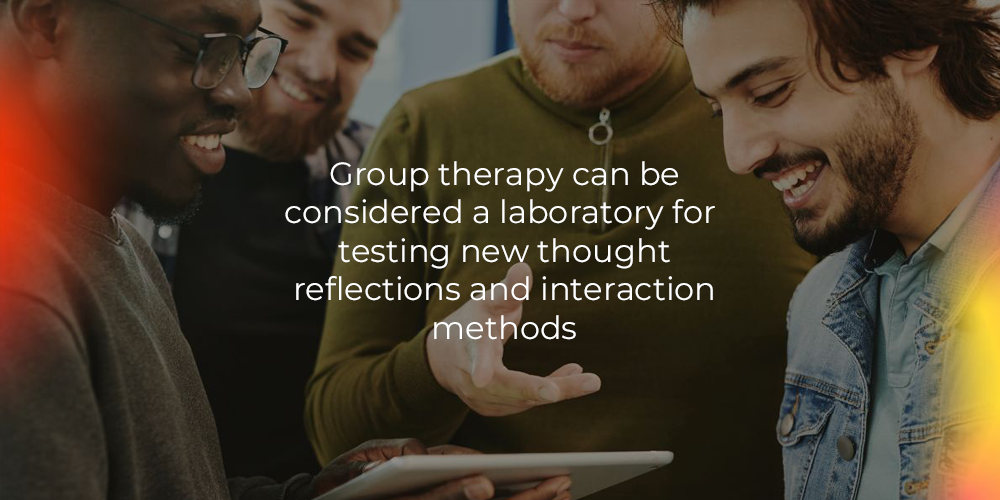Benefits of Group Therapy for Addiction Treatment
Posted by Daniella Park on 25th Apr 2023

As the need for behavioral intervention and long-term psychiatric care steadily rises, healthcare medics are employing alternative, more effective treatment approaches to fulfill this increasing injunction.
Group therapy is a practical or modern approach that solves the above concerns by simultaneously permitting multiple people to be treated. Doing so allows therapists to reduce time dilation and increase accessibility. This practice is essential for metro regions where health clinics are often understaffed and have a lofty volume of patients. Furthermore, group therapy can be employed to treat many cases, including, but not limited to, drug addiction, emotional trauma, anxiety, depression, and post-traumatic stress disorder (PTSD).
What is Group Therapy?
In group therapy, a counseling group usually includes six or more people who meet face-to-face with 1 or 2 trained counselors or facilitators and discuss their concerns and experiences around the raised topic. Group members hear each other and frankly provide their feedback.
Group therapy sessions or interactions allow members to increase understanding, try new ways of living, and learn more about addiction treatment through others’ life experiences and health routines.

Benefits of Group Therapy for Addiction Treatment
Group therapy benefits members in many ways more than individual therapy, including the following:
Practice New Skills
Addiction treatment is all about learning new cognitive and behavioral aptitudes from your bad habits. Group therapy recognizes and challenges distorted thought patterns, such as overgeneralization or catastrophizing. It helps to find new opportunities to practice real-life skills because people tend to fall back into more familiar patterns when stressed.
Friendly Environment
Group therapy provides a safe environment to experiment with alternative ways of treating your addictions and others that may be more satisfying. Many people feel odd because of their addiction habits or problems; it is motivating to hear that others have similar difficulties and can grow past them.
In some cases, the topic of the group sessions remains confidential; members agree not to identify other members or their concerns outside of the group. When people learn to interact freely with other group members, they recreate the same patterns of interactions that have proved disturbing to them in different situations.
Broader Range of Feedback
With group therapy, not only can you get support from your consultant, but you also give support to your fellow therapy members; In group sessions, every member can share their dark thoughts and positive talk about the issue and resolutions instead of acquiring individual therapy one at a time from the counselor. This may create a sense of camaraderie that will help you overcome your destructive addictions. In other words, group therapy may challenge you to remain sober.
Pocket-Friendly Treatment
Group therapy is a cost-efficient addiction treatment method, as fewer trained professionals are required to treat more patients. A cost reduction can increase the accessibility of addiction treatment, as a few insurance plans often cover costs.
Flexible Session Timings
Addiction treatment in group therapy allows therapists to be more adaptable to their sessions. Doing so may increase attendees to therapy sessions since mentors can schedule sessions during remote hours. Additionally, including multiple sessions throughout the day allows providers to treat more patients throughout the day, further reducing wait times in high-volume areas.
Group therapy helps you see how you commune with others. How you interact with group members often reflects your interactions with friends and family beyond treatment. Group therapy may help you improve your relationships and treat your addictions.

